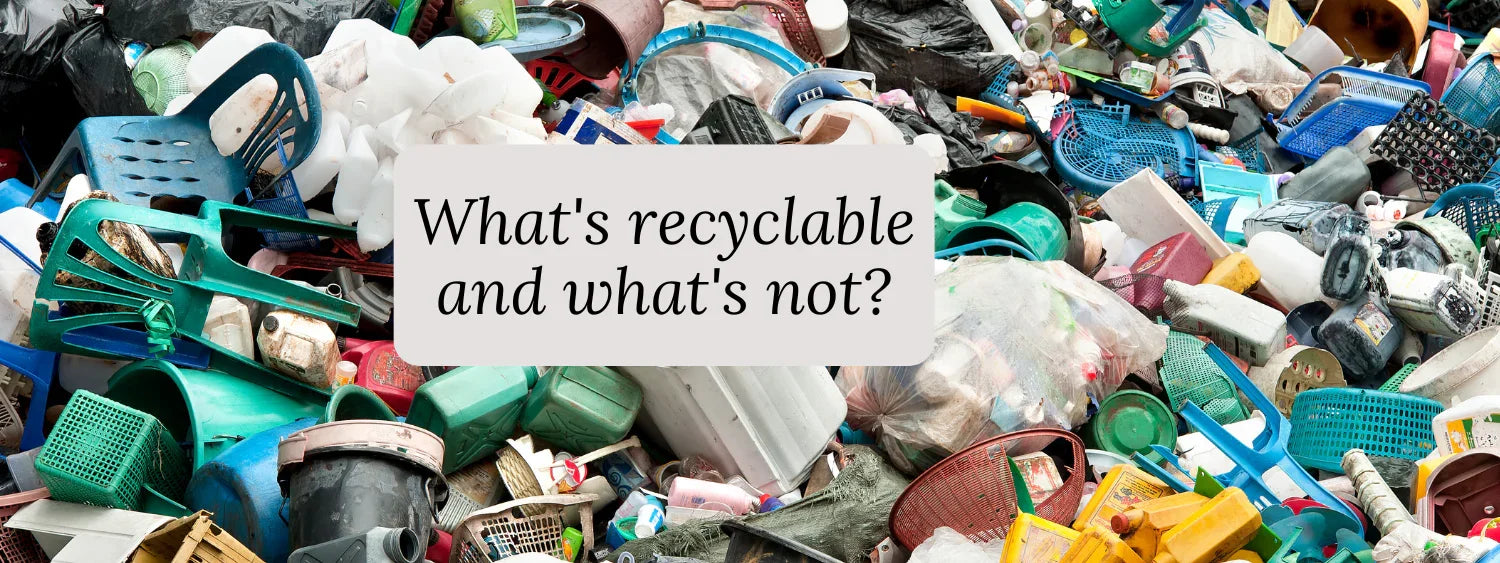
The Truth about Recycling
Plastic recycling reality: Only 5% gets recycled, 85% goes to landfills. Learn which plastics can actually be recycled and start your zero waste journey.
Recycling of plastic didn't even start until 1972. Yet in the US, we produced 25 million tons of plastic in 2000 and 50 million tons in 2021! And the numbers continue to rise each year. At least 85% of plastics went to landfills in 2021 where it can take up to 400 yrs to decompose. 10% is incinerated and 5% of plastic is recycled. The low level of plastic recycling doesn’t seem to lie in the act of recycling itself, because paper recycling has increased from 21.3 percent in 1980 to 68.2 percent in 2018.
The problem is misinformation and the actual ability to recycle. All plastics are not created equal, but when people see the familiar triangle (as above) printed on the plastic they assume it can be recycled. The number symbols that you see inside triangles on plastic bottles and containers were started by the Society of Plastics Industry (SPI) to simply identify the plastic resin content, not to identify for recycling.
Generally speaking, most recyclers accept plastics #1 PET or Polyethene Terephthalate (water bottles and plastic soda bottles) and #2: HDPE or High-Density Polyethylene (milk jugs, detergent containers, and oil bottles). Plastics #3 to #6 are more difficult to recycle and some recycling centers do not process them. Oftentimes these require specialty recycling centers. Plastic #7 is even more difficult to recycle and almost always excluded.
Single use plastics are especially problematic. They include plastic checkout bags, cutlery, foodservice packaging and service ware made from “problematic plastics”, six-pack ring carriers, beverage stir sticks and straws. Because these have no hope in recycling at all we need to limit them. In fact California, Connecticut, Delaware, Hawaii, Maine, New York, Oregon, Vermont have started the process by passing laws to prohibit plastic bags.
Now it's not realistic to think we can get rid of all plastics, but clearly it seems to be worth our while to limit the use as much as possible (my interpretation of "nearly zero waste". Remember aluminum and glass can be recycled almost indefinitely. Paper can be recycled multiple times. But plastic can only be recycled once, usually only into fleece or synthetic wood.
When options are available, doesn't it make sense to use the most eco friendly choice??
Don't you want to begin your best zero waste life? Visit DrSoaper.com
0 comments